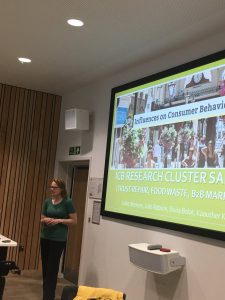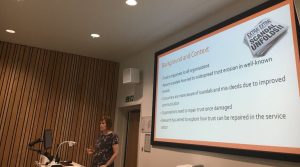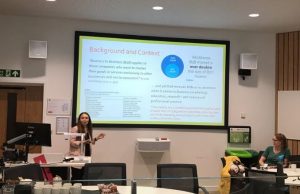Dr Mehdi Chowdhury of Bournemouth University Business School has published a book titled “Money and Inflation: A New Approach to Monetary Analysis for the 21st Century”. The publisher is Palgrave Macmillan.
A short summary:
The book aimed to develop a new scholarship on money and inflation on the background of the cost of living crisis faced by many countries of the world, and the inability of nation states to address monetary matters like inflation and the debt crisis.
Accordingly, the book proposes to go beyond the usual view of money expressed by monetary units like dollars, pounds, gold coins, bitcoins, bank money etc. and demonstrates that money is better identified as the ability of a person/party to obtain goods and services from another person/party. Such ability can originate via the possession of the money in usual sense, but also due to force, coercion, altruism, trust and human biological characteristics.
Money therefore encompasses all human activities and always in existence irrespective of forms or representation. Money, i.e., the ability to obtain originates due individual and social idiosyncrasies; and appears or disappear when those change. Inflation, instead of the usual measures expressed via the price indices, is identified as the increased need to utilise human body and mind to obtain goods and services from others. Hence inflation is connected with the availability of money, i.e. the ability to obtain of different segments of an economy. The causes of inflation are identified in the balance of triangle comprising non-market factors, the stored ability and the borrowed ability.
The current inflation can be explained by the increased desire to consume observed in modern societies, as well as the distortionary policies of governments favouring one section of the economy over another; both inducing individuals and sections to employ more body and mind to create money, i.e., the ability to obtain goods and services.
The book did not aim to provide a comprehensive analysis of economic policies, but the UK housing market has been studied to demonstrate how the policies taken during Covid-19 may have caused the inflation in the UK housing market through distortion.
The book suggests that the policies of the apex institutions like governments or central banks should on principle aim not to disrupt the balance of this triangle and to avoid distortion. This recommendation is equally applicable for the Third World countries; however, those countries should also aim to design economic policies to shield themselves from distortions caused by actions of international economic actors.
Individuals can also shield themselves from inflation i.e., the need to utilise more body and mind, by containing the desire to consume more that characterises modern societies.

 Join us to hear the latest updates and guidance on the influencer industry, parental and educators’ engagement, and online safeguarding. Experts in influencer marketing, digital resilience and safeguarding, digital parenting will provide insights into how educators, schools, local authorities, and parents can address social media influencers’ impact on children’s and families’ online activities and developing strategies to ensure the protection of the most vulnerable. Become the master of your digital genie!
Join us to hear the latest updates and guidance on the influencer industry, parental and educators’ engagement, and online safeguarding. Experts in influencer marketing, digital resilience and safeguarding, digital parenting will provide insights into how educators, schools, local authorities, and parents can address social media influencers’ impact on children’s and families’ online activities and developing strategies to ensure the protection of the most vulnerable. Become the master of your digital genie! 














 Professor Ruth Soetendorp, Associate Director of the Centre for Intellectual Property Policy and Management (CIPPM) in the Business School has been quoted in the Financial Times.
Professor Ruth Soetendorp, Associate Director of the Centre for Intellectual Property Policy and Management (CIPPM) in the Business School has been quoted in the Financial Times. 











 Conversation article: London Marathon – how visually impaired people run
Conversation article: London Marathon – how visually impaired people run Horizon Europe News – December 2023
Horizon Europe News – December 2023